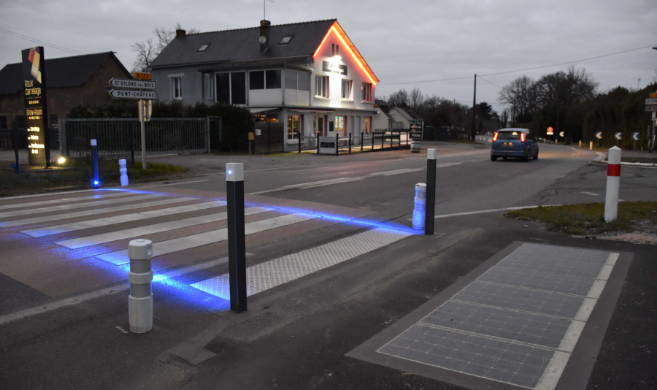Colas, a world leader of road construction and transport infrastructure services, launched the first-ever experimental solar-panel paved road that produces electricity in 2015. When the one-kilometer paved road in Normandy, France was inaugurated, the initiative received a lot of fanfare. The timing of the launch was timely in conjunction to the 2015 Paris Climate Conference (COP21).
Colas, name derived from ‘cold and asphalt’ was founded in 1929, capitalizing on an innovative patent to exploit cold asphalt which facilitated road building techniques. The French multinational, a world leader in transport infrastructure, had a turnover of €13 billion with over 57,000 employees in 2021.
Since its original inception in 2011, the solar roadway project has not made much headway. Although the solar road project was a failure, with a lot of patience spanning more than a decade, the R&D team was able to take the initial research and develop two spinoff and standalone products. This case study explores the long and patient path to innovation in established firms.
WHY THIS CASE?
Innovation is almost always synonymous with startups and incubators. However, in established firms, the approach to innovation is somewhat different. Our story explores the inherent advantages and drawbacks that established firms in their approach to innovation.









